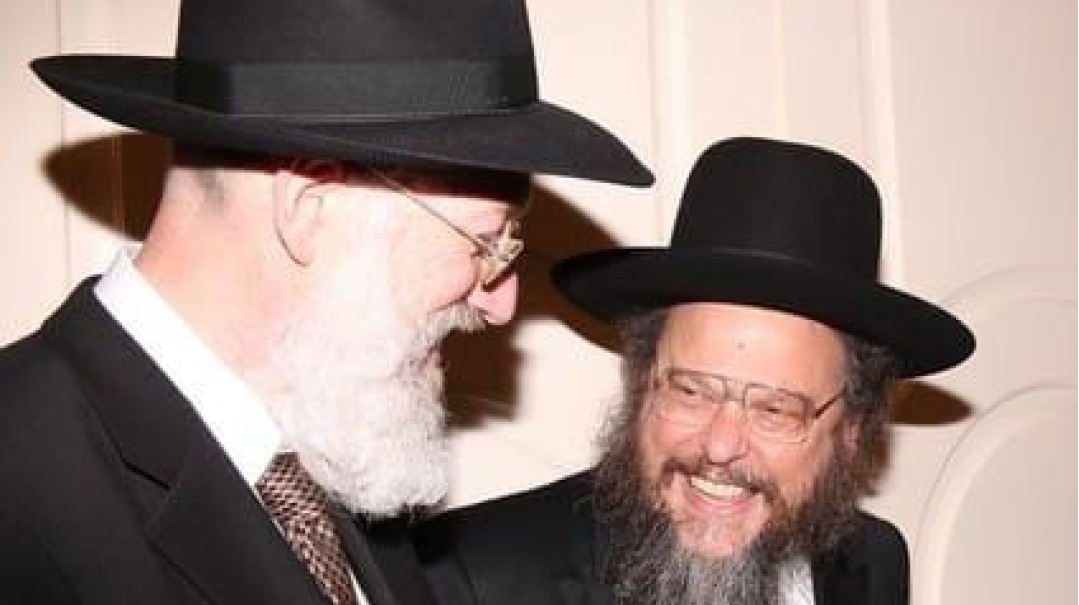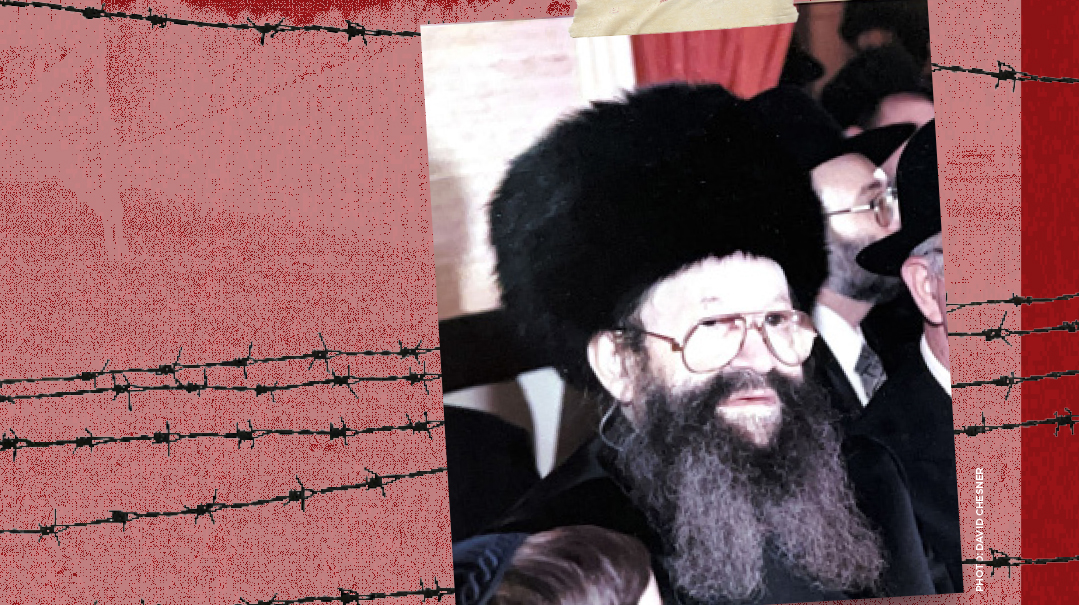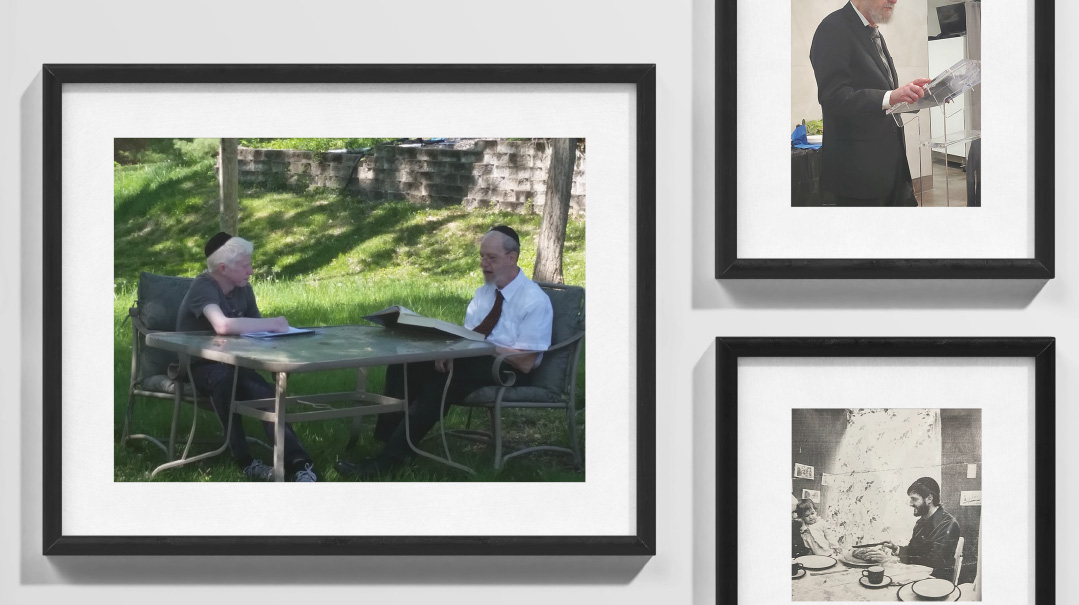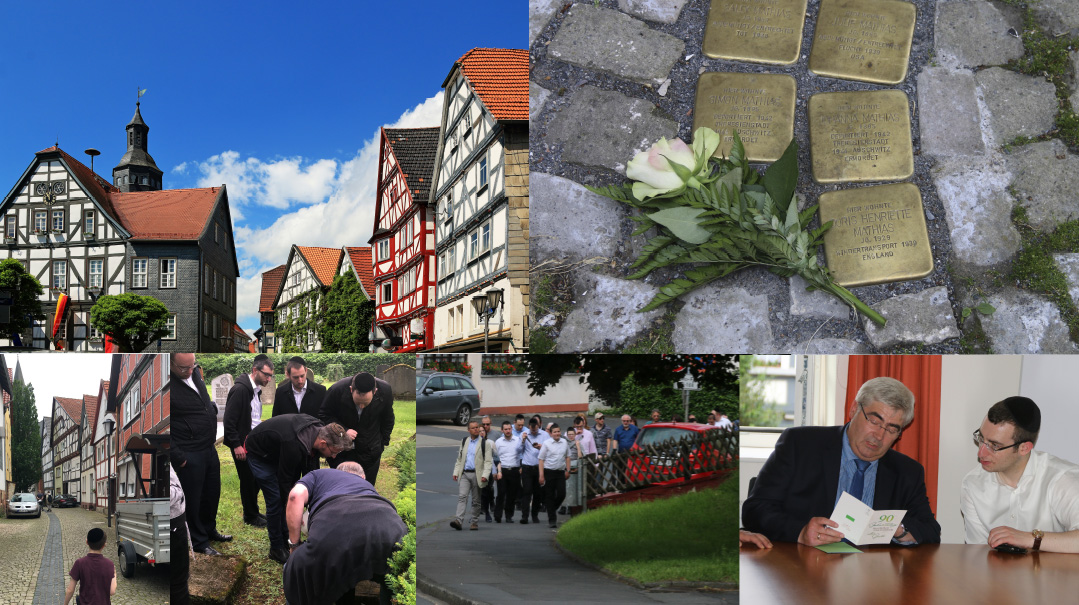Chanukah with Klal Yisrael

Instead of being in the kitchen frying latkes, I’d be lying post-surgery in hospital, deprived of the simchah of the chag.

A
s the light outside waned, the call came round: “Chanukah samei’ach! We’re lighting the candles now. Anyone who can, please come out to the nurses’ station.”
I pulled myself up to a sitting position. Then, adjusting my bags, bottles, and IV pole, I made my way very slowly to the hallway.
I was hospitalized in the surgical ward. Many patients weren’t in a position to rush off anywhere, and nurses and visitors helped them make their way to the nurses’ desk, where a crowd was gathering. A patient was asked if he’d like to “do the honors” and make the brachos over the menorah.
As he was about to start, a cry could be heard: “Wait a second! Someone’s still on her way! Just wait another minute for her.” Everyone happily waited as a barely mobile lady made her way slowly to the desk.
Chanukah is a time to be with family, lighting the menorah, playing dreidel, making dozens of latkes to serve the children and grandchildren, while trying hard to avoid eating too many myself — not to mention steering clear of sufganiyot.
When I was told that my surgery had been scheduled for two days before Chanukah, and that I’d be in hospital during most, if not all of the eight days, I wasn’t happy. It’s bad enough having cancer and knowing you’re facing surgery, radiation, and chemotherapy without having to miss being with your family at a real “family time.”
Instead of being in the kitchen frying latkes, I’d be lying post-surgery in hospital, deprived of the simchah of the chag.
What I didn’t realize was that being hospitalized in Shaare Zedek wouldn’t be like being hospitalized in any other hospital.
Before the first candle had even been lit, volunteers were doing the rounds in the wards, distributing doughnuts from various bakeries. “Don’t just take one! What about your children or grandchildren? Take for them, too.”
And soon after HaNeiros Halalu had been quickly sung, enabling the patients who could barely stand to return to their beds, the music started. Groups of yeshivah bochurim, Bnei Akiva and Ezra chanichim, as well as individuals playing various instruments, made their way round the hospital singing Maoz Tzur, Chanukiah sheli, and any other songs requested by the patients.
I’d insisted that all my family, including my children with many children of their own, stay home and light as early as they could, as was their custom, and enjoy Chanukah with their children…. I could see them later on.
My husband had his own she’ilos regarding when and where to light. He had until then spent the night in the hospital to be by my side, but as I no longer needed help 24/7, he went back home to light candles and go to sleep.
As I was arranging myself back in bed, two cute and very welcome heads popped through the curtain, after shouting out, “Knock, knock, can we come in?” (Have you ever tried knocking on a curtain?) Two of my grandchildren learn in Chevron Yeshivah in Givat Mordechai, just a short distance from the hospital, and wanted to be my first Chanukah visitors.
Good, I thought. Now I can start giving out some of my sufganiyot. But I hadn’t counted on the irresistible pull of the smell of fresh baking. Angel’s Bakery has a snack bar in the new shopping area of Shaare Zedek, and they’d set out a “trap” in the form of a stand of fresh doughnuts at the entrance to the hospital — and what a success it was!
Before I could give my grandsons the tasty but simple doughnuts I’d been given by the volunteers, the boys had emptied out onto my table a box of gooey chocolate-cream and frosting-covered ones that they’d purchased at the Angel’s stand.
“Which ones do you want, Bubby? You get first choice.”
I longed for a bite or two of each one, but the sad dietary list that lay next to me said: NO, NO, NO.
I’d be lying if I said it was difficult for them to eat them all without my help! I didn’t think that teenage boys, who admit that their yeshivah serves plenty of delicious food, could eat their way nonstop through five sufganiyot each. But what do you know?
My daughters started to arrive shortly afterward. The boys left… just in time, as soon afterward, four sweet American Bais Yaakov girls arrived. The curtain around my bed was open, and they could see there were no men around. They asked if they could sing for me.
I happily agreed, not wanting to deprive them of their mitzvah. But then they realized that a voice from around the other side of the curtain was male (we were two to a room, and my co-patient’s husband must have arrived), so they reduced their singing to whispering and after producing more sufganiyot and cute messages and taffies from their bag, they disappeared.
I figured that would probably be it regarding the chesed visits for the night, but I was wrong.
Later, as most visitors were gradually disappearing, and mine were still arriving (my family have always lived in a different time zone from the rest of the world), I heard a girl’s voice squeak excitedly, “There’s someone awake here.”
I couldn’t deny that I was still up.
“Please, can we play for you? We so much want to play for someone tonight before we go home.”
How could I refuse? I checked first with my roommate, and then gave the go-ahead.
These visitors weren’t your average chesed group. They were two ladies, older than most of the hospital entertainers, probably in their early thirties, and it seemed evident they hadn’t arranged their visit with anyone in the hospital itself. (If they had, they wouldn’t have arrived at such a late hour on the off chance that someone would be awake enough to listen to them!)
Debra had a guitar, and Sonia, I later discovered, was a professional classical flautist from Australia. They obviously wanted to tell their story as well as to play for us. They’d met on a bus that evening, and Debra, who lives in Jerusalem, had persuaded Sonia to come with her to play in the hospital. Their meeting was so bashert, as Sonia was just in the initial stages of conversion to Judaism and was longing to play the Jewish tunes she’d learned.
Her quiet, calm playing was a real balm, and when she asked me if she could play some classical non-Jewish music as well, I happily agreed. At the end of her recital, the clapping outside my room indicated just how many of the hospital staff had been attracted by her talent.
As they left, another voice piped up: “Has anyone in here not yet participated in Chanukah lighting? We’ll be happy to light them here for you.”
And I thought I’d be missing out on the Chanukah experience by being in hospital!
(Originally featured in Family First, Issue 673)
Oops! We could not locate your form.







